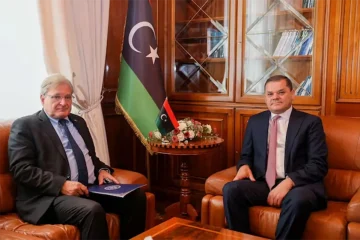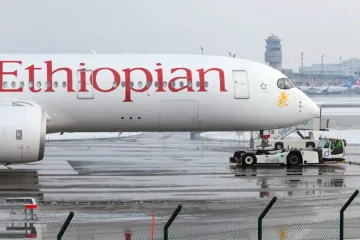A global shift in foreign direct investment (FDI) dynamics, with investors globally increasingly favouring the service sector over traditional manufacturing, could favour Africa, according to Tanzanian-based analyst, Musila Muoki.
According to a new report by the UN Trade and Development Organization, the global FDI shift is being shaped by “trends in global value chains, technological advancements, geopolitical dynamics and environmental concerns.”
“From 2004 to 2023, the share of cross-border greenfield projects in the services sector jumped from 66% to 81%,” the authors of the report released on April 23 explain.
The trend has been echoed in Africa, where greenfield service sector investment has surged, with FDI inflows as a share of the continent’s GDP being 69% in 2023, up from 40% a decade earlier.
While the global shift carries concerning implications for manufacturing, the pivot towards service trade comes at a time when efforts are being made to bolster intra-African trade under the African Continental Free Trade Area (AfCFTA) agreement.
Musila Muoki, co-founder of Liberty Sparks, a Tanzania-headquartered Think Tank, pointed to Africa’s readiness for a service sector takeoff fueled by AfCFTA, especially since the Trade in Services Protocol has been in force since 2019.
“The protocol is designed to boost intra-African trade around four modes of supply, including cross-border supply, consumption abroad, commercial presence, and enhancing the temporary movement of natural persons,” he explained.
“The fast-tracking of commitments in the adopted schedules to start trading in services is a matter of urgency,” he added.
Trade in goods under AfCFTA has already proven viable, with countries such as Tanzania, Tunisia, Kenya, Ghana, and South Africa, among others, successfully piloting bilateral trade.
Attention is now shifting towards unleashing the potential of service trade, with sectors like tourism, transport, business, communications, and financial services earmarked as priority areas for development.
“While trade in goods has traditionally received more attention, AfCFTA recognizes the immense potential of services in transforming African economies,” the AfCFTA secretariat indicated in a statement in May 2023.
Recent developments appear to validate this opportunity.
At the World Travel Market Africa B2B Tourism Conference held in Cape Town between April 10 and 12, a groundbreaking partnership was unveiled between two tourism boards, Cape Town Tourism and Victoria Falls Tourism.
A press statement on the conference website notes that the highlight of the collaboration is the transfer of valuable knowledge from Cape Town Tourism to Victoria Falls.
“This exchange, following a focused site inspection, enabled Victoria Falls to adapt successful strategies and data collection methods, improving the visitor experience.”
Another stride in cross-border services came in April when the Uganda Consulate in Mombasa organised a four-day Uganda culinary event in the Indian Ocean port city and the countries explored cross-cultural tourism collaboration.
Beyond tourism, momentum is also building in the financial services sector, with initiatives like the Pan African Payment and Settlement System (PAPSS) gaining traction as countries pursue instant cross-border payments in local currency.
Tunisia’s formal entry into PAPSS in February made it the thirteenth central bank member in the system, along with nearly 30 private banks, signalling a concerted effort to streamline cross-border payments within Africa, reducing costs and settlement times.
A 2017 report by the Society for Worldwide Interbank Financial Telecommunication, SWIFT, revealed that about 48% of all intra-African import/export settlements involved intermediation by a bank outside the continent, resulting in high costs and an extended payment settlement time for transactions.
Further, a draft protocol to regulate digital trade within the continent, adopted in February 2024 by African heads of state is a milestone that, upon ratification, is expected to accelerate trade in services under AfCFTA.
Franziska Sucker, an associate professor in the school of law at the University of Witwatersrand, explains the significance of the digital trade protocol.
“It represents a consolidated pan-African approach on digital trade issues, paving the way for regulatory convergence and common standards,” she shared in an article published by The Conversation.













